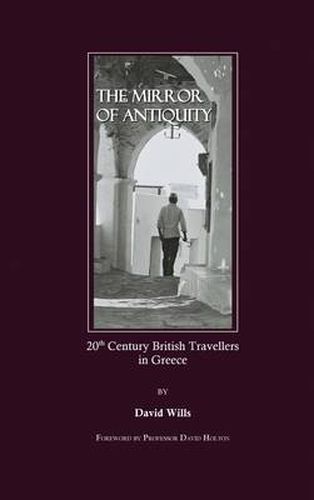Readings Newsletter
Become a Readings Member to make your shopping experience even easier.
Sign in or sign up for free!
You’re not far away from qualifying for FREE standard shipping within Australia
You’ve qualified for FREE standard shipping within Australia
The cart is loading…






During the last century, writers as diverse as William Golding, Henry Miller, Lawrence Durrell, Evelyn Waugh, Virginia Woolf, and Laurie Lee, were captivated by Greece. They were joined in their production of travel accounts by hundreds of lesser-known authors. This book exposes how the responses of travellers were conditioned by much more than their own opinions and personalities. The British education system, classical scholarship, and the heroism demonstrated by the Greeks during the Nazi invasion of their country, all contributed to shaping travel narratives. The author analyses the way in which all of the major archaeological sites were described-including the Athenian Acropolis, Delphi, Olympia, Heinrich Schliemann’s Mycenae, and Sir Arthur Evans’ Knossos in Crete. The representation of the modern Greek people, particularly in the period after the Second World War, is also explored at length. Viewed as relics of the past, the Greeks in literature were given the qualities and appearance of their ancestors. David Wills shows how in the hands of twentieth century travel writers, Greece became less a modern country, and more a mirror of antiquity. This book is essential reading for all who are interested in the history of travel and tourism, reception of the classical past, and recent Greek history.
$9.00 standard shipping within Australia
FREE standard shipping within Australia for orders over $100.00
Express & International shipping calculated at checkout
During the last century, writers as diverse as William Golding, Henry Miller, Lawrence Durrell, Evelyn Waugh, Virginia Woolf, and Laurie Lee, were captivated by Greece. They were joined in their production of travel accounts by hundreds of lesser-known authors. This book exposes how the responses of travellers were conditioned by much more than their own opinions and personalities. The British education system, classical scholarship, and the heroism demonstrated by the Greeks during the Nazi invasion of their country, all contributed to shaping travel narratives. The author analyses the way in which all of the major archaeological sites were described-including the Athenian Acropolis, Delphi, Olympia, Heinrich Schliemann’s Mycenae, and Sir Arthur Evans’ Knossos in Crete. The representation of the modern Greek people, particularly in the period after the Second World War, is also explored at length. Viewed as relics of the past, the Greeks in literature were given the qualities and appearance of their ancestors. David Wills shows how in the hands of twentieth century travel writers, Greece became less a modern country, and more a mirror of antiquity. This book is essential reading for all who are interested in the history of travel and tourism, reception of the classical past, and recent Greek history.